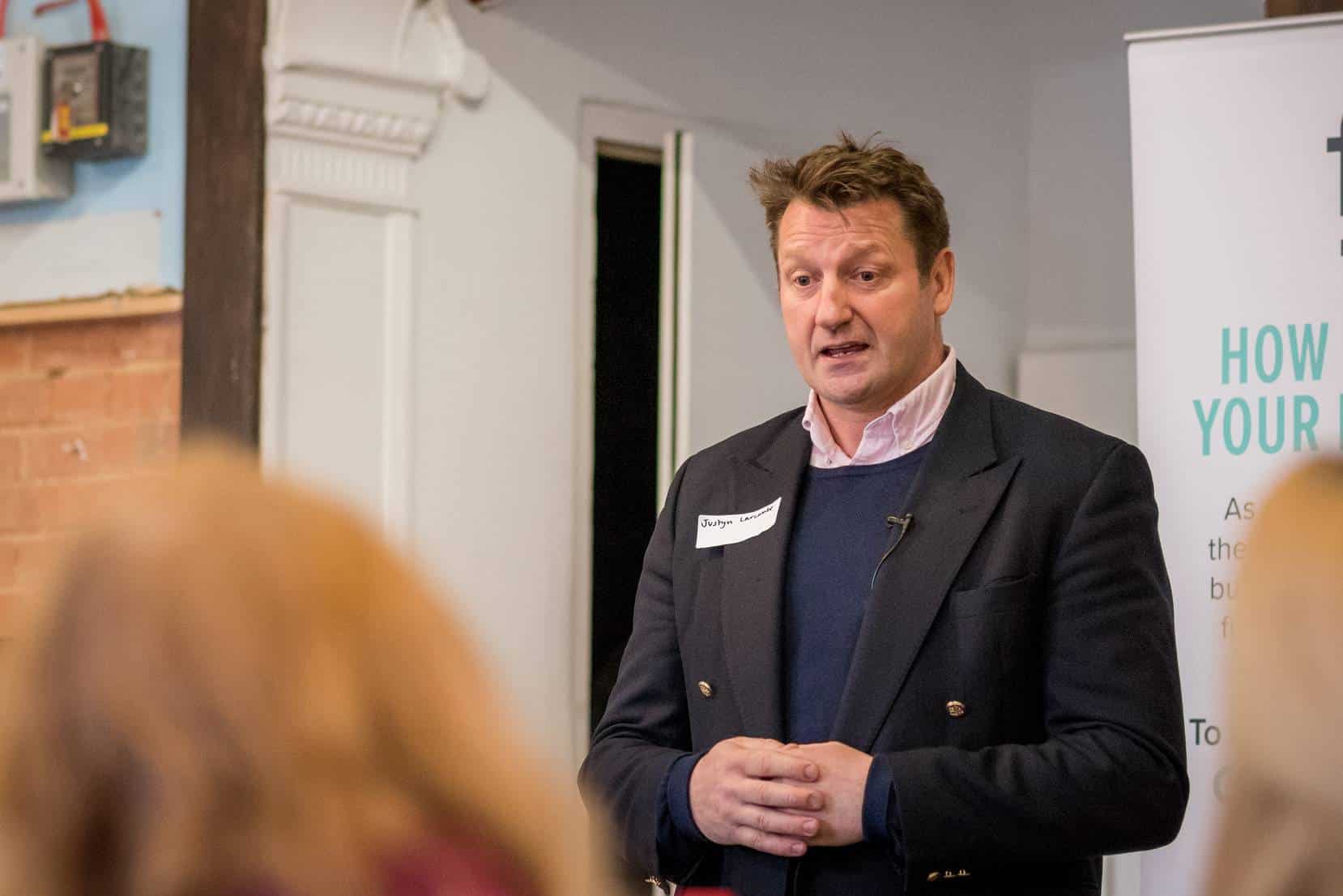A FORMER army Major who lost his marriage, his job and his house to an online betting addiction has warned of the gambling industry’s impact on the smartphone generation.
Justyn Larcombe, 48, told an audience at the Old Fire Station how he squandered £750,000 over three years but was able to pick himself up from rock bottom, after moving back in with his mother in Tonbridge.
Now running RecoveryTwo, a Tonbridge-based addiction and mental health course, he believes young people face a ‘coming catastrophe’.
“What I’m worried about is our young people. Gambling is so easy now, you do it on your smartphone. And who are the most adept at smartphone technology? Young people.
“I recently went to Tonbridge School to tell my story. The prevalence of underage gambling there was really astonishing.
“If you are between the ages of 16-23, you are three times more likely to have a problem with gambling than someone who gambles if they’re older.”
The blame, he argued, lies with advertisers who are bombarding young people with glamorous imagery of betting. But he also pointed to more ‘under the radar’ methods, such as introducing the concept of gambling into children’s games.
He told of finding his seven year old son playing fruit machines on his iPad. The only thing at stake was virtual points within the game, Rollercoaster Tycoon, in which the player builds fairground rides to attract more people in and earn money.
“One of the things you can buy in the game is a casino. So you go in, put in some of your coins and generally you’ll win.
“They’re learning risk and reward at a very young age,” he said, adding that what he found most disturbing was that the game is owned by Atari, a company which also produces and profits from online casino games.
Support
More locally, he has helped give talks for West Kent Debt Advice based in Derwent Road and has established RecoveryTwo – a Christian based addiction and mental health course run in a similar style to Alcoholics Anonymous.
Set up by five trustees who have all suffered from addictions in the past, the course runs for 15 weeks from Tonbridge Baptist Church.
“They have all been through it so they know what people go through. In that way I think they can be a real help,” he said.
“I love to see people being able to make the right choice and recover. I’d say to anyone who knows someone in this position: ‘Don’t judge them, love them’.”
Road to ruin
Thirty years ago, Mr Larcombe’s life was on a very different trajectory. Awarded the Sword of Honour by the Queen for his excellent performance at Sandhurst Royal Military Academy, he rose through the ranks, and was the youngest Major in the British Army for a ‘couple of months’.
After serving in Northern Ireland and Kosovo, he left the forces but quickly found success in the City. By 2006, he was engaged to his now ex-wife Emma in Derbyshire, on a six-figure salary and driving a Porsche.
But one Sunday in 2009, he was watching a game of Premiership rugby when he saw an advert for a £5 free bet and decided to sign up ‘for a bit of fun’.
“I’m not anti-gambling, but it is that 0.9 per cent of people with a pathological addiction that we need to be worried about”
But, as is the case for those who end up with a gambling addiction, the illness is progressive.
As debts started to spiral, he began to take more risks to recoup his losses, putting down £17,000 for the strong favourite on a single tennis match. He lost.
All this time he was hiding it from his wife – even after he lost his job for spending £27,000 on his corporate card.
Although, reading through bank statements she eventually found out and left with the children.
Within three years of that first bet, he had gone from a city high flyer with the perfect family life to an alone gambling addict with £70,000 worth of debt. In his most desperate moment he sold his Sword of Honour to a pawnbroker for £200.
His mother, from Tonbridge, came up to Derbyshire and brought him back home. From his childhood bedroom he worked on paying off his debt and getting his life back on track.
“I’m not anti-gambling, but it is that 0.9 per cent of people with a pathological addiction that we need to be worried about,” he said.
Online gambling in the UK
£4.5billion is spent (or lost) annually, meaning it is a considerable contributor to the UK’s GDP. The majority (£2.6billion) of this comes from casino games such as roulette and blackjack and £1.6billion is lost on sports betting.
Mr Larcombe said the government takes around £450million in tax from gambling companies, ‘so are in no rush
to scale them back’.
The law states that in order to gamble online you must be 18-years-old or over.








